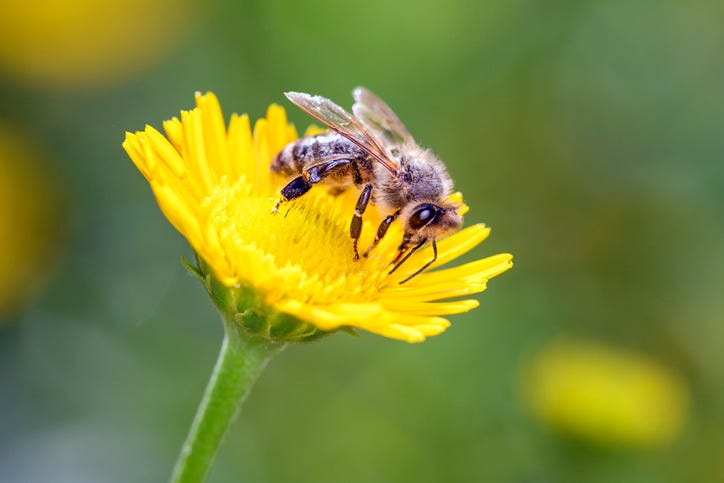
New York legislators rallied at the state Capitol Monday for legislation aimed to protect bees by ending the use of a group of insecticides known as neonics.
The Birds and Bees Protection Act is in response to a 2020 report from Cornell University which found that using neonics poses a threat to the state's bees while providing few benefits to farmers.
According to the report, neonicotinoid insecticides -- also known as neonics -- are the most widely used class of insecticides in the world. They absorb into plant tissues and spread throughout the plant, providing continuous protection for a length of time. However, neonics can accumulate in pollen and nectar, and are highly toxic to many non-target organisms, including insect pollinators which are experiencing population declines.
The report found that farmers who use neonic-treated seeds do not consistently increase expected net income compared to untreated seeds. At the same time, widespread use of neonic-treated seeds poses unnecessary risks for insect pollinators.
"New York beekeepers have lost more than 40% of their bee colonies almost every year for the last decade – largely due to neonic pesticides," bill sponsor Sen. Brad Hoylman-Sigal said in a statement. "The pollinator species our bill protects are integral to our ecosystem and the state's agriculture industry. Some estimate bees contribute the equivalent of $439 million annually in pollination services."
The bill is aimed primarily at seeds used for crops like corn, wheat and soy, which are often coated with neonics to keep pests from eating them. Additionally, the bill applies to insecticides used on outdoor ornamentals and turf.
Under the act, the department of environmental conservation would also be required to identify practicable and feasible alternatives to the use of neonics.
"Pollinators are vital members of healthy ecosystems and our food supply chain. Protecting them by limiting toxins that pose adverse effects and health risks is an important step forward in our work to stop poisoning the environment," Assemblymember Deborah Glick said in a statement.
Pesticides targeted in the legislation include the active ingredients clothianidin, imidacloprid, thiamethoxam, dinotefuran, or acetamiprid. They're often used in formulas that target pests including aphids, adelgids, leafhoppers, flies, whiteflies, borers, leaf-feeding beetles, white grub, hemlock woolly adelgid, emerald ash borer, and Asian longhorned beetles.
The legislation allows a phase-in period of several years, giving seed suppliers, farmers and others the needed time to adapt before the ban would take place starting Jan. 2026.
The Birds and Bees Protection Act passed the state Assembly in April for the second year in a row, but continues to be held up in the state Senate.
Follow KNX News 97.1 FM
Twitter | Facebook | Instagram | TikTok


